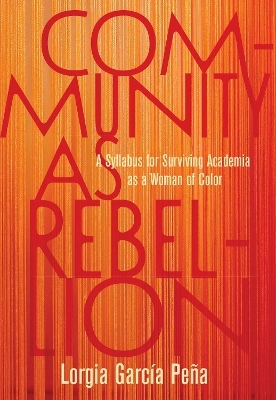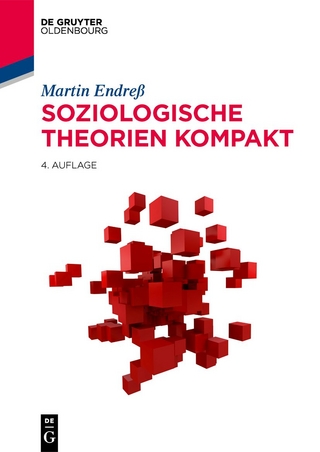
Community as Rebellion
Haymarket Books (Verlag)
978-1-64259-692-2 (ISBN)
A meditation on freedom making in the academy for women scholars of color.
Weaving personal narrative with political analysis, Community as Rebellion offers a meditation on creating liberatory spaces for students and faculty of color within academia. Much like other women scholars of color, Lorgia García Peña has struggled against the colonizing, racializing, classist, and unequal structures that perpetuate systemic violence within universities. Through personal experiences and analytical reflections, the author invites readers—in particular Black, Indigenous, Latinx, and Asian women—to engage in liberatory practices of boycott, abolition, and radical community-building to combat the academic world’s tokenizing and exploitative structures.
García Peña argues that the classroom is key to freedom-making in the university, urging teachers to consider activism and social justice as central to what she calls “teaching in freedom”: a progressive form of collective learning that prioritizes the subjugated knowledge, silenced histories, and epistemologies from the Global South and Indigenous, Black, and brown communities. By teaching in and for freedom, we not only acknowledge the harm that the university has inflicted on our persons and our ways of knowing since its inception, but also create alternative ways to be, create, live, and succeed through our work.
Lorgia García Peña is a first generation Latinx Studies scholar. Dr. García Peña is the Mellon Associate Professor of Race, Colonialism and Diaspora Studies at Tufts University and a Casey Foundation 2021 Freedom Scholar. She studies global Blackness, colonialism, migration and diaspora with a special focus on Black Latinidad. Dr. García Peña is the co-founder of Freedom University Georgia and of Archives of Justice (Milan-Boston). Her book The Borders of Dominicanidad (Duke University Press 2016) won the 2017 National Women’s Studies Association Gloria Anzaldúa Book Prize, the Isis Duarte Book Award in Haiti and Dominican Studies and the 2016 Latino/a Studies Book Award. She is the author of Translating Blackness (Duke University Press) and the co-editor of the Texas University Press Series Latinx: The Future is Now. She is a regular contributor to The Boycott Times, Asterix Journal and the North American Council on Latin America (NACLA).
Table of Contents:
1. On being “the One”: The first chapter relates the challenges of being tokenized within the academy as a women of color scholar. The chapter provides personal examples and posits a proposition to contrast the individualistic model of success with one of community.
2. Complicity: This chapter lays out what the author considers a structure of complicity that sustains unequal labor practices that systematically affect women of color. Based on a series of interviews and autoethnographic interventions, the chapter takes on tenure, labor appropriation, mentoring as some of the main sites of complicity.
3. Freedom: This chapter proposes teaching as an act of freedom making and offers practical examples of how to teach in/for freedom, how to create communities that promote collective learning and engage in justice-making practices in the classroom that can lead to long-term positive changes in our society.
4. Ethnic Studies as Rebellion: This final chapter meditates on ethnic studies as a critical site from which to fight against the hegemonic practices of exclusion that uphold Eurocentric and Euro-American knowledge as the only way to see the world while relegating knowledge that comes from everywhere else to the periphery. The chapter is an invitation to rebel through centering subjugated knowledge and the epistemologies of oppressed peoples.
| Erscheinungsdatum | 13.10.2021 |
|---|---|
| Zusatzinfo | 5 photographs |
| Verlagsort | Chicago |
| Sprache | englisch |
| Maße | 133 x 190 mm |
| Themenwelt | Sozialwissenschaften ► Ethnologie |
| Sozialwissenschaften ► Soziologie ► Allgemeine Soziologie | |
| Sozialwissenschaften ► Soziologie ► Gender Studies | |
| ISBN-10 | 1-64259-692-2 / 1642596922 |
| ISBN-13 | 978-1-64259-692-2 / 9781642596922 |
| Zustand | Neuware |
| Haben Sie eine Frage zum Produkt? |
aus dem Bereich


